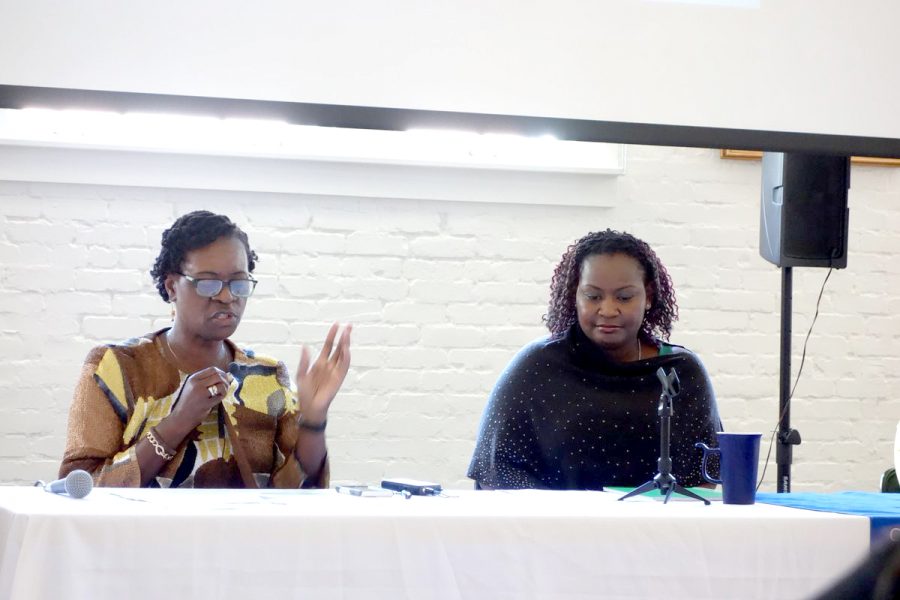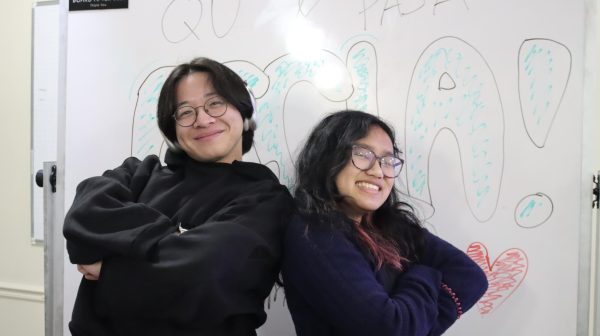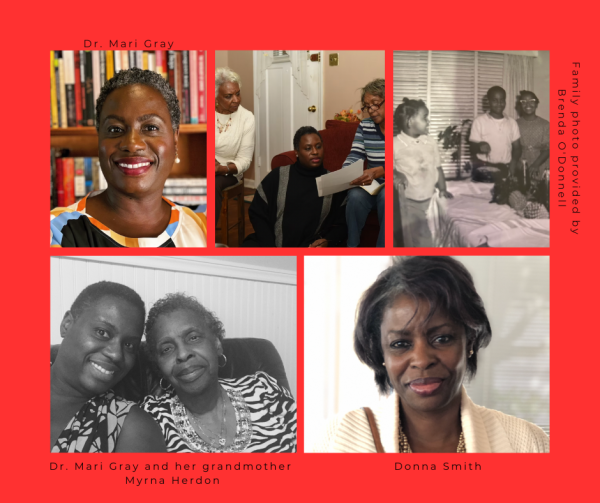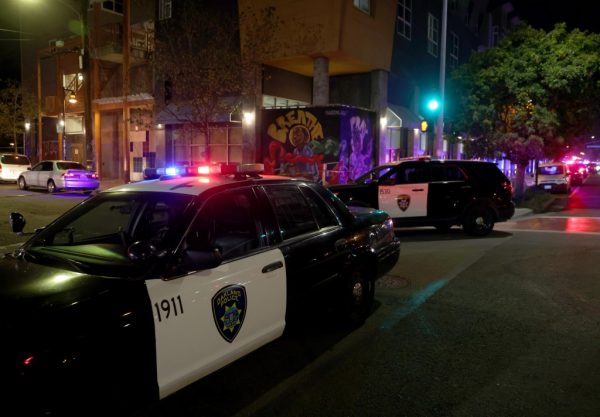Speaker explains ‘traveling blackness’
Sounds of Celia Cruz and The Fugees carried through the atmosphere as students and faculty filed into the Biella Room of CSU East Bay’s library on Monday. The music was catchy but held a deeper meaning to guest speaker Dr. Manoucheka Celeste. Her presentation titled “Constructing & Crossing Borders: Media, Identity, and Belonging” focused on migration and answering the eternal question: “What does it mean to belong?”
From Port-au-Prince, Haiti, Celeste now lives in Gainesville, Florida where she is an assistant professor of African American studies and women’s studies at the University of Florida. Her teachings center on identities of gender, sexuality, immigration, and women. But her focus has always been Haiti and the portrayal of the Caribbean in media.
She began with an inquiry of what the nature of citizenship is and introduced her book, “Race Gender and Citizenship in the African Diaspora: Travelling Blackness.” Before reading some excerpts from her book, she prefaced with a question: what is the interrelationship between racialized gender and immigration?
The room was quiet with thought but Celeste continued on, “Who gets citizen privacies? Who is restricted and why?” Her voice echoed through the audience as she half-heartedly waited for a response and then began to read to the crowd.
“I wrote the book because I had to,” Celeste said. “I graduated and started studying this stuff and I wanted to figure out a way to write a cohesive story about representation, about blackness, about immigration. In each chapter it takes up a different perspective, such as news, images, music, and political persons. I was able to explore these different facets and put it together in an umbrella of one book.”
Through her questions, Celeste’s sense of humor shined as she discussed Beyonce and cracked a few jokes during her speech. She uses music as a means of coping but also a learning process. For example, cultures can connect through shared experiences, especially migrating and the influence of black artists all over.
“I use the term traveling blackness as a way to give a nod to movement,” said Celeste. “Movement of identity across time and space. Black people have always traveled, we think of African movement only through slavery but in the pre-colonial time black people were moving all over, through Africa, Asia, etc. So I use the term to pay homage to that and also pay attention to the restrictions that we’ve faced from Jim Crow laws and the restrictions among national borders. We live in a place where we think of concepts as singular, many think the only people crossing borders are Latinos but there are black immigrants and there are black Latino immigrants. Blackness is complex.”
Jessica Rybnikar, a fifth-year psychology major, was impressed with the presentation.
“I came to get a feel of new topics and hear new discussions especially in terms of immigration and racial belonging. East Bay has a strong focus of sexual harassment but what about inclusiveness?” Rybnikar told the Pioneer. “I wanted to see how many people feel the same about these types of discourse and the campus’ impact in terms of these issues not always talked about.”
For Celeste, this is another stop on the road for what she plans to accomplish with her work.
“One word to describe my vision: freedom,” concluded Celeste. “I’m Haitian, we believed in freedom early on and we continue to so it’s that revolutionary blood in me.”












